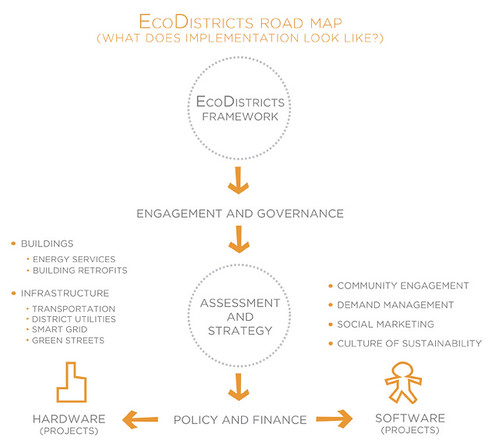Today, NCPC Presentation: Shades of Green: Washington’s Emerging Ecodistricts
 From email:
From email:Wednesday, April 11, 2012
6:30 – 8:00 pm |Program
National Capital Planning Commission
401 9th Street, NW, Suite 500, Washington, DC 20004
Ecodistricts are popping up throughout the National Capital Region, but each takes a different approach to sustainability. Join this casual spring gathering to hear from those planning the region’s future showcases of sustainability. Presentations will feature inspiring innovations in finance, governance, policy, and design that are helping turn these initiatives into reality.
FEATURED PROJECTS
• Arlington’s Community Energy Plan
• DowntownDC ecoDistrict
• NCPC’s Southwest Ecodistrict
• UDC Sustainability Initiative
• Walter Reed Site Sustainability Plan
Moderated by Rob Bennett
Executive Director, Portland Sustainability Institute
-----
What I find interesting about the "sustainability" phenomenon or the interest in sustainability is that it is a way to re-position and (re)engage people's interest in planning-related issues in a manner that is not typical of more traditional land use and/or transportation planning processes.
When Baltimore City and Baltimore County (separately) started sustainability planning processes and created a Sustainability Commission (in Baltimore City) or a Committee (Baltimore County), the space was provided is such a way that that allowed for a redefinition of planning issues, such as around transportation, in ways that many stakeholders hadn't previously been willing to consider.
The momentum generated by this process in Baltimore City in particular continues forward.
The "Ecodistrict" phenomenon may be a way to further the integration of sustainability principles into planning more generally.
-- Ecodistricts Initiative, Portland, Oregon
-- Ecodistrict publications
-- "The next small thing: How sustainable neighborhoods could reshape cities," article from Grist Magazine
-- Ecodistricts Summit, Portland, Oct. 23-26

Labels: green-environment-urban, land use planning, participatory democracy and empowered participation, sustainable land use and resource planning, transportation planning



0 Comments:
Post a Comment
<< Home